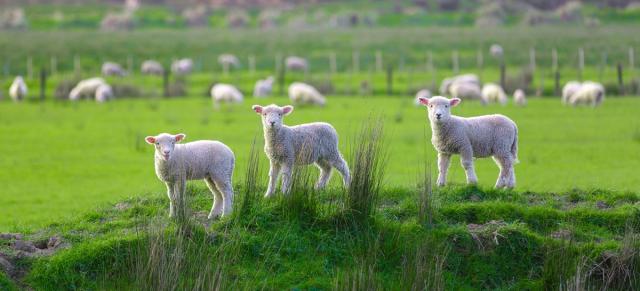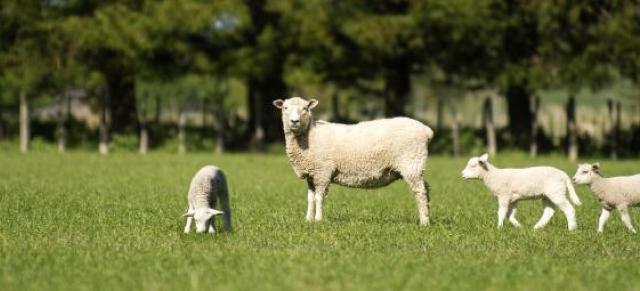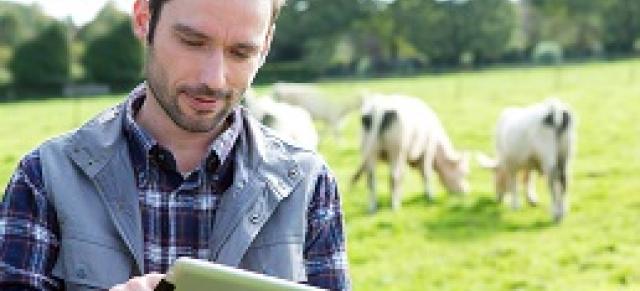In a joint decision, the Government and industry have agreed to attempt phased eradication of Mycoplasma bovis from New Zealand. The outbreak of M. bovis and the phased eradication programme underscores the importance of on-farm biosecurity. This information resource aims to help you understand what the phased eradication programme means for your farm business, support you to review your general farm biosecurity, and provide relevant information about M. bovis.

Update 11 November 2021: access the independent review into the M. bovis eradication programme that captures lessons learnt and makes recommendations to better prepare the biosecurity response system for any future disease incursions.
NEW WEBSITE: Mycoplasma bovis Info Hub
Visit the Mycoplasma bovis Info Hub for affected farmers at https://www.mbovis.govt.nz/
This new website contains the latest updates and M. bovis situation reports, information on the eradication process, compensation, public meetings and community events, resources, and support for farmers.
This website also contains more information about the National Surveillance in the beef industry.
NEW RESOURCE: M. bovis compensation
- Download – M. bovis Compensation Guide (PDF, 1.7MB)
A new guide has been jointly developed by B+LNZ, DairyNZ, and MPI to help farmers affected by the M. bovis response navigate the M. bovis compensation process.
If you are a farmer directly affected by M. bovis, we have a team that can help you with compensation.
The DairyNZ and Beef + Lamb New Zealand Compensation Assistance Team can help you with:
- understanding whether you are eligible for compensation,
- clarify what losses you can claim for,
- working through the compensation claim forms with you,
- supporting you through the compensation claim process.
This is a free service that is supported by MPI, run independently by DairyNZ and Beef + Lamb New Zealand.
Call us on 0800 322 281 and we will put you in touch with a compensation assistant to help step you through the process and ensure you have the answers you need. Alternatively you can email the team at dbcat@dairynz.co.nz or dbcat@beeflambnz.com.
Mycoplasma bovis guidance for beef cattle farmers
- Download – Mycoplasma bovis guidance for beef cattle farmers (B+LNZ)
A booklet that outlines the steps cattle farmers can take to reduce the risk of introducing Mycoplasma bovis onto their farms.
Biosecurity resources for sheep & beef farmers
Specific resources for graziers, calf rearing and those bringing new cattle onto their property.
- Download – Protect your farm from M. bovis (MPI)
A summary on how to protect your farm from M. bovis - Download – Biosecurity communication plan for graziers (B+LNZ)
A guide for farmers grazing cattle, on what they need to check, when and with who, to keep M. bovis off their farm - Web link – Biosecurity on grazing properties (Dairy NZ)
This interactive guide for graziers can protect the health of the stock they manage. - Podcast – Managing the risk of M. bovis during the winter grazing season (B+LNZ)
Richard Laven of Massey University explains the precautions graziers and owners can take to further reduce the low risk of spreading the disease, and what farmers should be doing as good biosecurity management practice. - Podcast - How to keep your farm free from M. bovis (B+LNZ)
Ashleigh Dobson and Paul McCauly cover all you need to know about the disease and keep it out of your herd so that phased eradication has the highest chance of success. - Web link – Weaned calves (Biosecurity New Zealand)
If you are planning on buying, selling, and/or moving weaned calves to grazing, there are steps you can take to help protect your animals from M. bovis. - Web link – Precautions to take during calving (Dairy NZ)
Advice on precautions to take during calving and calf rearing - Download – Managing service bulls (MPI)
Recommendations for management of bulls - Download – Pre-purchase checklist for M. bovis (MPI)
Pre-purchase checklist when buying cattle - Web link – Calf rearer survey underway (Biosecurity New Zealand)
A survey of around 200 calf rearing properties is on across the country. The test involves a simple one-off nasal swab on calves at the property. The properties selected are not suspected of having M. bovis - Download – Protecting your animals from M. bovis (Biosecurity New Zealand)
Things you can do to help protect your animals from M .bovis and other diseases with good biosecurity practices on-farm
General biosecurity
- Download – Drystock Biosecurity Guidelines (B+LNZ)
Seven intervention points to help protect your farm from pests and diseases - Download – WOF checklist (B+LNZ)
Use this checklist for sheep and beef farmers to identify ways you can help protect your farm - Web link – Biosecurity associated with livestock movements (B+LNZ)
Suggested biosecurity practices for livestock movements – NAIT and quarantine - Video – NAIT information by OSPRI (OSPRI)
A full suite of NAIT tutorial videos on how to use NAIT - Web link – Your NAIT requirements (OSPRI)
Anyone in charge of cattle or deer must comply with NAIT regulations - Web link – Manage your animals with NAIT (OSPRI)
Learn more about sending and receiving animals
Understanding Mycoplasma bovis
- Web link – Mycoplasma bovis (MPI)
Protection, response and latest updates on M.bovis - Download – What to look out for (MPI)
A3 poster available to download/print on ‘what to look out for’ to identify symptoms of M. bovis. - Download – Potential impact of Mycoplasma bovis on the NZ beef sector (MPI)
Predictive assessment of the potential impact on the NZ beef sector
Compensation and support
- Download – Looking after yourself (MPI)
Who to contact for support when facing M.bovis - Download – Biosecurity Act compensation form (MPI)
The Biosecurity Act compensation claim form - Web link – Understanding Biosecurity Act compensation (MPI)
General information on understanding how Biosecurity Act compensation works, including guides and information on how the process works. - Download – Mycoplasma bovis compensation claim form user guide (MPI)
A specific guide on filling out a Biosecurity Act compensation claim form relating to M. bovis
Mycoplasma bovis – an overview
Mycoplasma bovis:
- is a bacterial disease
- is commonly found in cattle all over the world, including in Australia, but this is the first detection of it in New Zealand. We were one of the last countries free of the disease - until now
- it does not infect humans and presents no food safety risk. There is no concern about eating meat, milk and milk products
- M. bovis is particularly difficult to detect, owing to the poor sensitivity of diagnostic tests, and the fact that many cattle which become infected will never show visible signs of disease
- however, under the right conditions, it can lead to serious conditions in cattle and therefore constitutes an animal welfare and productivity issue
- it spreads from animal to animal through close contact. Between farms it spreads through the movement of animals that are infected but not showing symptoms. It is also potentially spread on contaminated equipment and the feeding of untreated milk to calves. It is not windborne
- while some of the conditions can be treated, affected cattle will always be carriers of the disease
- the disease does not affect sheep or cause illness in goats.
How it affects cows
Infection does not mean clinical disease will develop. However, signs of M. bovis disease include:
- untreatable mastitis
- severe pneumonia in up to 30% of infected calves, starting as a hacking cough
- ear infections in calves, the first sign typically being one droopy ear, progressing to ear discharges and in some cases a head tilt
- abortions
- swollen joints and lameness (severe arthritis/synovitis) in all ages of cattle
- if you see anything unusual or concerning in your animals, call your vet.
Advice
There are steps you can take on farm to help protect your animals from contracting M.bovis, by referring to the resources provided on this page.
For more information, you can go to the MPI webpage dedicated to Mycoplasma bovis.



